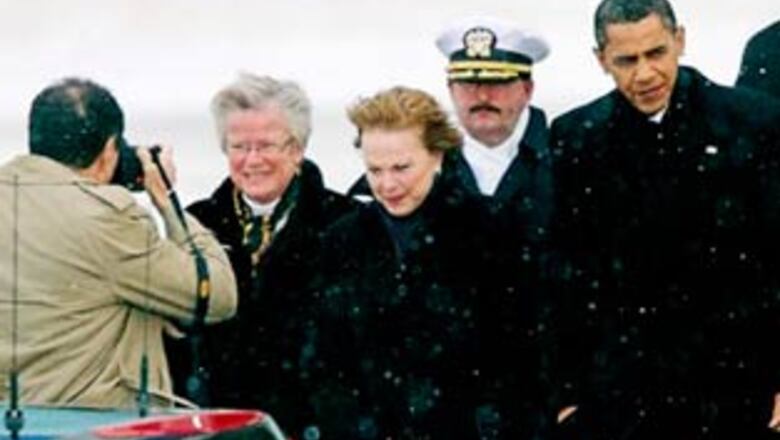
views
Copenhagen: Representatives of 192 countries quibbled over every word through the night as a weak political declaration started to emerge out of the climate summit once scheduled to finalise a treaty that would tackle global warming.
As security helicopters circled atop snow flurries, around 130 heads of state gathered in Copenhagen on Friday were told by their environment ministers and officials that there had been no breakthrough.
It was left to the heads of state to finalise the political declaration. Prime Minister Manmohan Singh and Chinese Premier Wen Jiabao had breakfast together at a hotel and were then scheduled to arrive at the Bella Centre, the conference venue, to join other world leaders.
Denmark's Prime Minister Lars Lokke Rasmussen will brief them on the declaration, which is expected to be adopted in the afternoon after a lunch and the ritual photo ops for the heads and their families.
A member of the drafting team from an European country delegation told IANS: "Mainly, it now says global temperature rise should be kept within two degrees (celsius), that developed countries should fix a year by which their (greenhouse gas) emissions must peak, that developing countries should try to reach a peaking year too but without setting a date, and that negotiations towards a legally binding treaty should be completed within the next six months."
The declaration remains "weak" and "wishy washy" in the absence of agreement over the main sticking points dogging this Dec 7-18 UN Framework Convention of Climate Change (UNFCCC) conference - the refusal by industrialised countries to commit more emission reductions and their unwillingness to put on the table money to help poor countries cope with climate change effects.
There had been some hope on Thursday that the financing knot would be untied when US Secretary of State Hillary Rodham Clinton announced that her country would help put together $100 billion a year after 2012 to help the "poorest and most vulnerable countries" adapt to climate change.
But she made that conditional to agreement by emerging economies--naming China--to let their domestic emission reduction actions be open to international scrutiny. China and India have long opposed this on grounds of sovereignty, though on Thursday China's Vice Minister of Foreign Affairs He Yafei offered to make his country's actions more transparent.
That was not enough for the rich countries, and the main negotiations, over what is called long-term cooperative action (LCA), broke down in the middle of the night over it.
Among the ministers camping in their delegation offices overnight, those from G20--including India's Environment Minister Jairam Ramesh--were called in an effort to break the logjam, but to no avail.
As the LCA negotiations collapsed, those over the Kyoto Protocol --the current treaty to tackle climate change--could not proceed either. Thousands of bleary-eyed negotiators trooped back to their hotels for a few hours of rest before they would be called back and told to finish negotiations within six months.
The atmosphere was vitiated further when some of the NGOs shadowing the talks leaked a UN assessment, which said that with the current level of emissions reduction commitments by rich countries, global temperature could rise over three degrees celsius in the coming decades.
The Intergovernmental Panel on Climate Change (IPCC) has said any rise above two degrees may have "unpredictable and catastrophic consequences".
An official of the UNFCCC secretariat expected heads of state would now ask their officials to finish negotiations by June 2010, when the officials are scheduled to meet at UNFCCC headquarters in Bonn. "If they fail again, they will be given another six months, till the summit in Mexico City next November," he added.
A failure to finalise a treaty will mean that after 2012, when the current phase of the Kyoto Protocol runs out, there will be no legal instrument to tackle climate change that is already affecting farm output, making droughts, floods and storms more frequent and more severe, and raising the sea level.

















Comments
0 comment